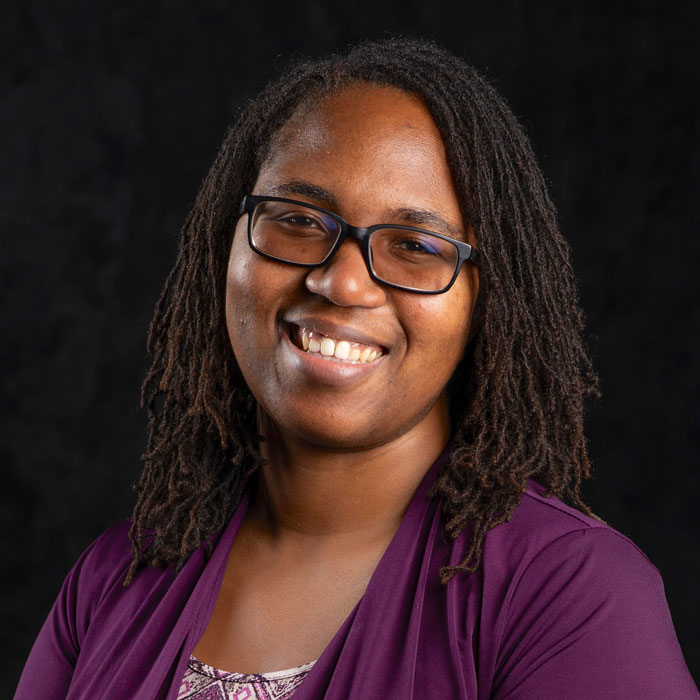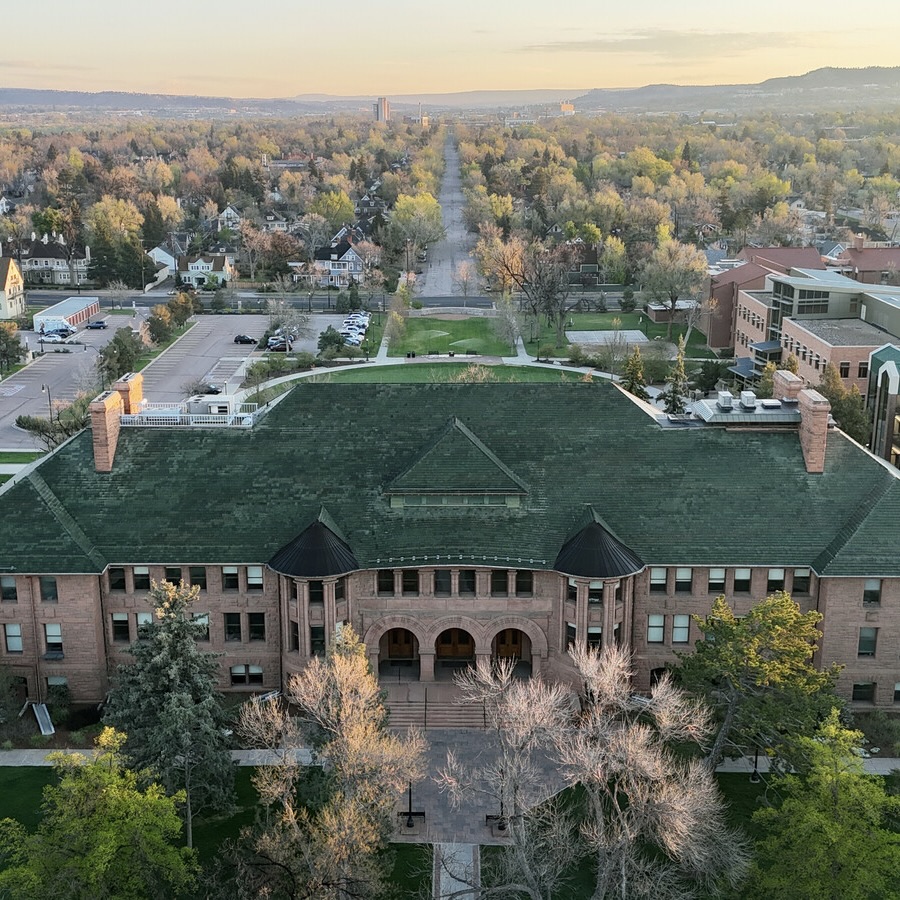Jessica Kisunzu, assistant professor of organic chemistry, is a member of the Center for Computer-Assisted Synthesis, which has recently been named one of only seven Phase II National Science Foundation Centers for Chemical Innovation in the nation.
The National Science Foundation Centers for Chemical Innovation Program, which supports collaborative efforts to address fundamental chemical research challenges, funds the Center for Computer-Assisted Synthesis, and recently awarded C-CAS $20 million.
Kisunzu’s role in C-CAS is as a faculty member in the Data Chemists Network.
The Data Chemists Network’s vision is to contribute to the work of changing the academic and funding landscape by connecting, enabling, and amplifying the work and expertise of faculty members whose identities or institutions have been historically underrepresented in National Science Foundation centers. “We are particularly invested in increasing access and collaborations for faculty from underrepresented racial groups and a range of institutions, for example, liberal arts colleges, R1 or R2 universities, historically Black colleges and universities, and tribal colleges,” says Kisunzu.
Additionally, Kisunzu currently serves as the Data Chemists Network’s representative on the center’s executive committee.
“C-CAS is building a future where a chemist designs a new molecule and uses AI to work out how to best make that molecule,” Sean L. Jones, assistant director for the Mathematical and Physical Sciences Directorate at the National Science Foundation, said in a statement last month. “This will allow industries, including pharmaceuticals, biotechnology, fine chemicals, electronics and more to make molecules more sustainably and affordably. This is a grand research challenge with huge societal impact.”
C-CAS is led by Olaf Wiest, a professor of chemistry and biochemistry at the University of Notre Dame.
C-CAS is specifically looking at how to connect data science, machine learning, and other computational methods to advance how chemists build and study organic molecules.
Kisunzu is excited to be a part of C-CAS and the Data Chemists Network for many reasons, but narrowed it down to two.
“First, since starting at Colorado College, one of my research and teaching goals has been to incorporate more computational chemistry into the work that I’m doing with students,” says Kisunzu. “This allows us to learn more about how we can apply computer science, data science, modeling, and other tools to organic chemistry to enhance and optimize the work that we’re carrying out in the laboratory.”
Kisunzu has already had the opportunity to begin research collaborations with other faculty members and their graduate students in the center, which has supported summer research experiences for three Colorado College students thus far.
“Second, having a network is invaluable for individual and collective growth and advancement,” says Kisunzu. “Being part of the Data Chemists Network has been a wonderful experience so far and I’m excited to continue collaborating and supporting one another in research and professional development in the coming years.”
Kisunzu looks forward to incorporating various educational modules that are developed by center members throughout her courses at Colorado College.
Learn more about Kisunzu’s work on her website.






